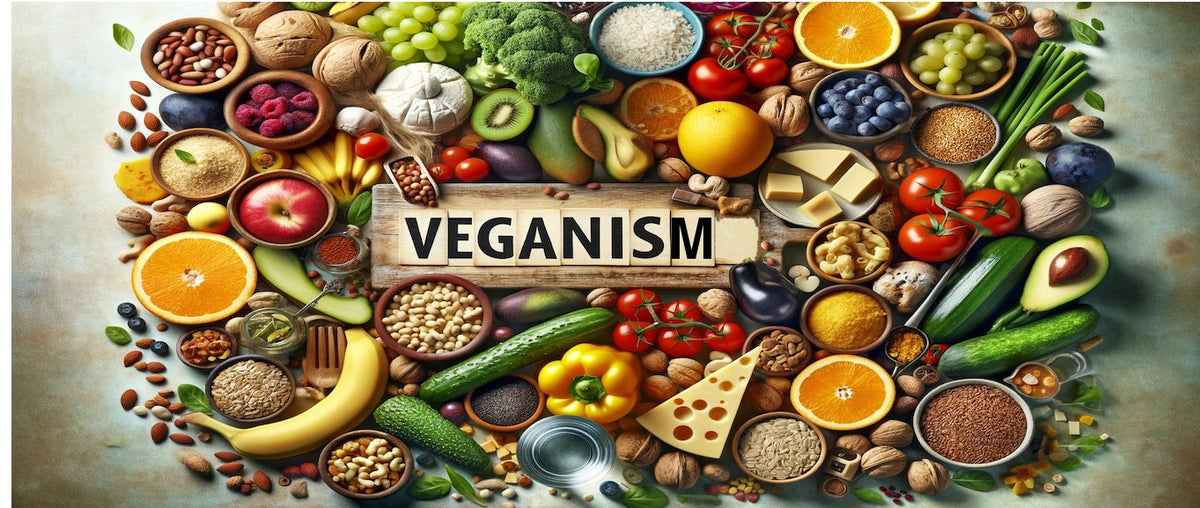The Ethics of Palm Oil and Veganism
In recent years, the conversation around palm oil and veganism has grown louder and more nuanced. Palm oil is ubiquitous, found in everything from Vegan Cheese to plant based foods, and even in non-food products. Despite its plant-based origins, the ethical implications of palm oil production have led many in the vegan community to question its place in a truly vegan lifestyle.
Key Takeaways
- Palm oil's vegan status is complex, considering its plant-based origin but significant ethical and environmental concerns.
- The industry's impact on deforestation, biodiversity loss, and human rights abuses raises critical ethical dilemmas for vegans.
- Sustainable palm oil initiatives exist, yet their effectiveness and integrity are debated within the vegan and environmental communities.
- Consumers and companies play crucial roles in demanding and supporting sustainable practices.
- The broader interpretation of veganism might influence the acceptance of palm oil as vegan-friendly, depending on individual ethical considerations.
The Complexity of Palm Oil
Palm oil is derived from the fruit of oil palms, primarily grown in Southeast Asia, Africa, and Latin America. Its appeal lies in its versatility and efficiency; palm oil trees produce more oil per land area than any other vegetable oil crop. However, this efficiency comes at a cost. The expansion of palm oil plantations has been a leading cause of deforestation, threatening biodiversity and contributing to climate change. This environmental impact, coupled with concerns over human rights abuses in the palm oil industry, presents a dilemma for vegans who strive for ethical consumption.
Palm Oil and Veganism: An Ethical Dilemma
For those who follow a vegan diet, the decision to consume Vegan products containing palm oil is not black and white. While Veganism primarily avoids animal products, the broader ethical considerations—such as environmental preservation and human rights—play an essential role in the choices vegans make.
The Debate on Palm Oil's Vegan Status
At its core, veganism is about minimizing harm to all living beings. The deforestation caused by palm oil production has devastating effects on countless species, including critically endangered animals like orangutans, elephants, and tigers. This habitat destruction, along with the exploitation of workers, raises significant ethical concerns that many vegans find incompatible with their principles.
Navigating the Waters of Ethical Consumption
For those in the vegan community looking to navigate these ethical waters, the choice often involves seeking out plant based products that are both cholesterol free and produced sustainably. Sustainable palm oil, certified by organizations like the Roundtable on Sustainable Palm Oil (RSPO), offers a potential middle ground. However, the effectiveness and integrity of these certification schemes are subjects of ongoing debate.

Environmental Impact of Palm Oil Production
The production of palm oil is one of the leading causes of deforestation in tropical regions. The clearing of vast areas of rainforest for palm oil plantations has dire consequences for the environment, contributing significantly to biodiversity loss and climate change. This deforestation not only releases large amounts of carbon dioxide but also destroys the habitats of numerous species, pushing them towards extinction.
Why Palm Oil Is Bad For The Environment
- Deforestation leads to the loss of habitat for endangered species.
- Peatland drainage for new plantations releases massive amounts of carbon dioxide.
- Soil erosion and water pollution from unsustainable agricultural practices.
How Does Palm Oil Affect Humans and Animals?
The Human Toll
The palm oil industry is notorious for its poor labor practices, including exploitation of workers, child labor, and violation of indigenous peoples' rights. The quest for cheap plant based products has led to social conflicts and human rights abuses in producer countries, raising serious ethical concerns for consumers worldwide.
The Plight of Wildlife
Animals suffer immensely due to the expansion of palm oil plantations. Orangutans, pygmy elephants, and Sumatran rhinos are among the many species that face the threat of extinction due to loss of natural habitat. This destruction has mobilized vegan food products enthusiasts and environmentalists alike to call for urgent action.
Also Read
Sustainable Palm Oil: A Path Forward?
Can Palm Oil Be Sustainable?
The concept of sustainable palm oil aims to address the environmental and social issues associated with its production. Certification schemes like the RSPO are steps towards ensuring that palm oil is produced without causing harm to the environment or society. However, the effectiveness of these certifications in truly minimizing impact is a subject of debate within the Vegan Shop and broader community.
The Role of Consumers and Companies
Consumers have the power to influence the market by choosing products that use sustainable palm oil or by opting for alternatives to palm oil altogether. Companies, on the other hand, can commit to transparency in their supply chains and invest in sustainable practices.
Palm Oil: Vegan Friendly or Not?
The debate over whether palm oil can be considered vegan friendly hinges on the broader interpretation of veganism. If veganism is viewed strictly as avoiding animal products, then palm oil qualifies. However, if veganism encompasses a wider ethical stance that includes environmental conservation and human rights, the answer becomes more complex.
Palm Oil and Cruelty-Free Standards
The question of whether palm oil is cruelty free revolves around its impact on animals and the environment. For many, the answer lies in whether the palm oil is sourced sustainably and ethically, aligning with the principles of minimizing harm.
The discourse around palm oil's sustainability and its place in veganism underscores a critical juncture in ethical consumption. The journey towards a truly sustainable and ethical palm oil industry is fraught with challenges but not without hope. Innovations in agricultural practices, stronger enforcement of labor rights, and increasing consumer demand for transparency are paving the way for change.
What Hope Is There for the Future?
Efforts towards sustainable palm oil production are gaining traction, offering a glimpse of hope for mitigating environmental damage and improving social equity. Consumer awareness and activism play pivotal roles in this shift, pressuring companies to adopt and enforce more stringent sustainability standards.
Navigating Ethical Consumption
For vegans and environmentally conscious consumers, navigating the complexities of ethical consumption involves making informed choices. Supporting brands committed to sustainable and ethical practices, advocating for systemic change, and continually educating oneself on these issues are vital steps in aligning one's lifestyle with their values.
Conclusion
The debate over palm oil's place in veganism highlights the intricate web of ethical, environmental, and social considerations that define modern consumption. As we strive for a more sustainable and just world, the choices we make today—whether as consumers, activists, or citizens—will shape the legacy of our stewardship for generations to come.
Craving a delicious vegan meal? Look no further! We've got a guide to the best vegan restaurants in India, ready to help you discover amazing plant-based eats in your city.










